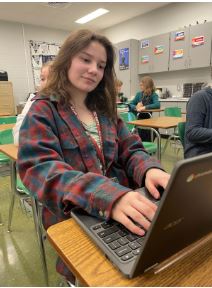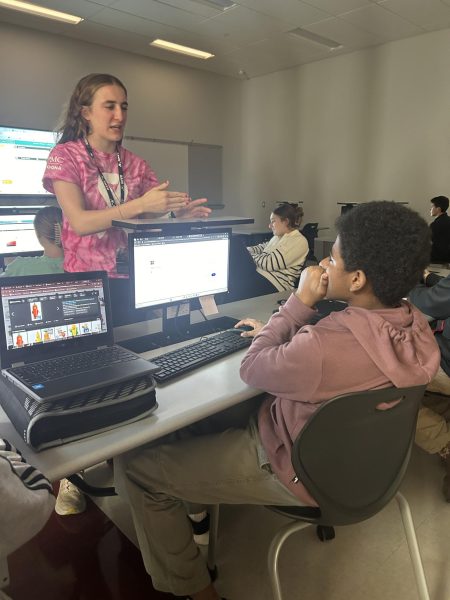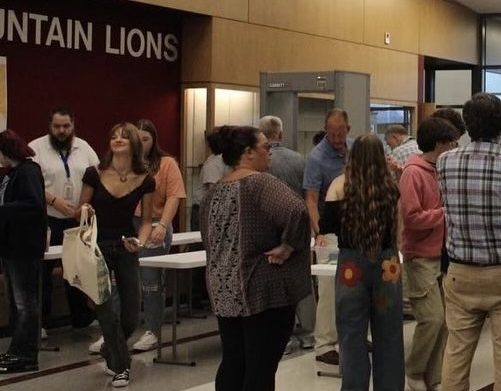Civics classes to take Citizenship Test

Working Hard. Typing away on her keyboard, freshman Gabrielle Beldin works on an assignment for her civics class. The assignment is on the parts of Congress, which could appear on the Citizenship test.
Civics teachers and their students are preparing for the end of year Citizenship test, a near replica to the actual one given to those trying to become U.S. citizens.
The test has forty questions and covers U.S. history, government, civics and even the country’s geography.
“It’s kind of a fun thing to see the level of improvement in a student from before they took your class to after,” civics teacher Marshall Foust said, “I’ve never seen somebody not improve. It’s often fun to see somebody who maybe got a 30 at the beginning of the year, and then they get a 60 at the end.”
Foust says the questions are taken from a poll used by the government, which is helpful in not only showing the students what they know, but also what the naturalization process is like.
“I think it would be somewhat hypocritical if we didn’t have to take it but people who wanted to be naturalized would have to take it and really work for it, and we would just kind of cruise along,” freshman Gabrielle Beldin said.
Although Beldin admits to being slightly nervous for the test, she understands why it is being given and thinks it is important that Americans know about their government.
“It just proves that even though we have our citizenship and we were born here, we’re worthy of having citizenship,” Beldin said.
Besides showing how students would do if they were trying to gain citizenship, the test is also in place in hopes that students will better understand their country’s government.
“Honestly, as a citizen, not understanding how the government works can very much hinder you in life. So this hopefully helps give a basic foundation,” civics department head Kimberly Shope said.
Because the test is so important and covers such a great variety of topics, students might find themselves at a loss for how to prepare for it.
“It’s not something that you really can just buckle down and cram for,” Foust said, “I think the key to success is just participating in civics, following along with the information and keeping up with the work and homework.”

I am an associate editor and this is my second year on staff! I've always loved reading and writing. My dream job, at the moment, is to work at Barnes...







Madison Aboud • Feb 16, 2023 at 8:11 pm
I love this news story! As a citizen and a student at AAHS, I think it is vital that we understand what others have to go through. Well done!!
Georgiana Condon • Jan 29, 2023 at 2:34 pm
They already are citizens!! This is unnecessary. This is USA we don’t need this taught to our children
Mrs. Lucas • Jan 29, 2023 at 2:26 pm
I have a new book in the library that will help you study for this test! See me if you would like to check it out!